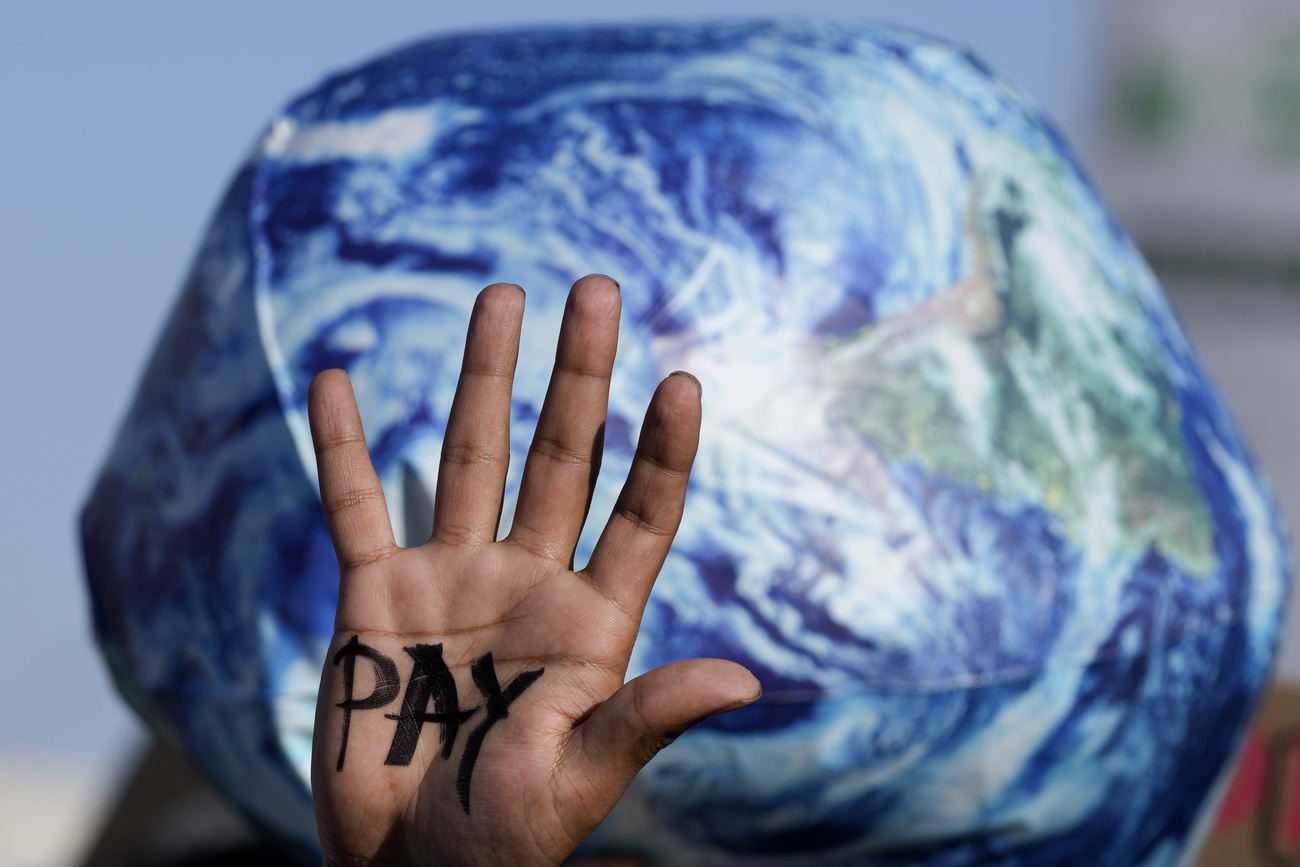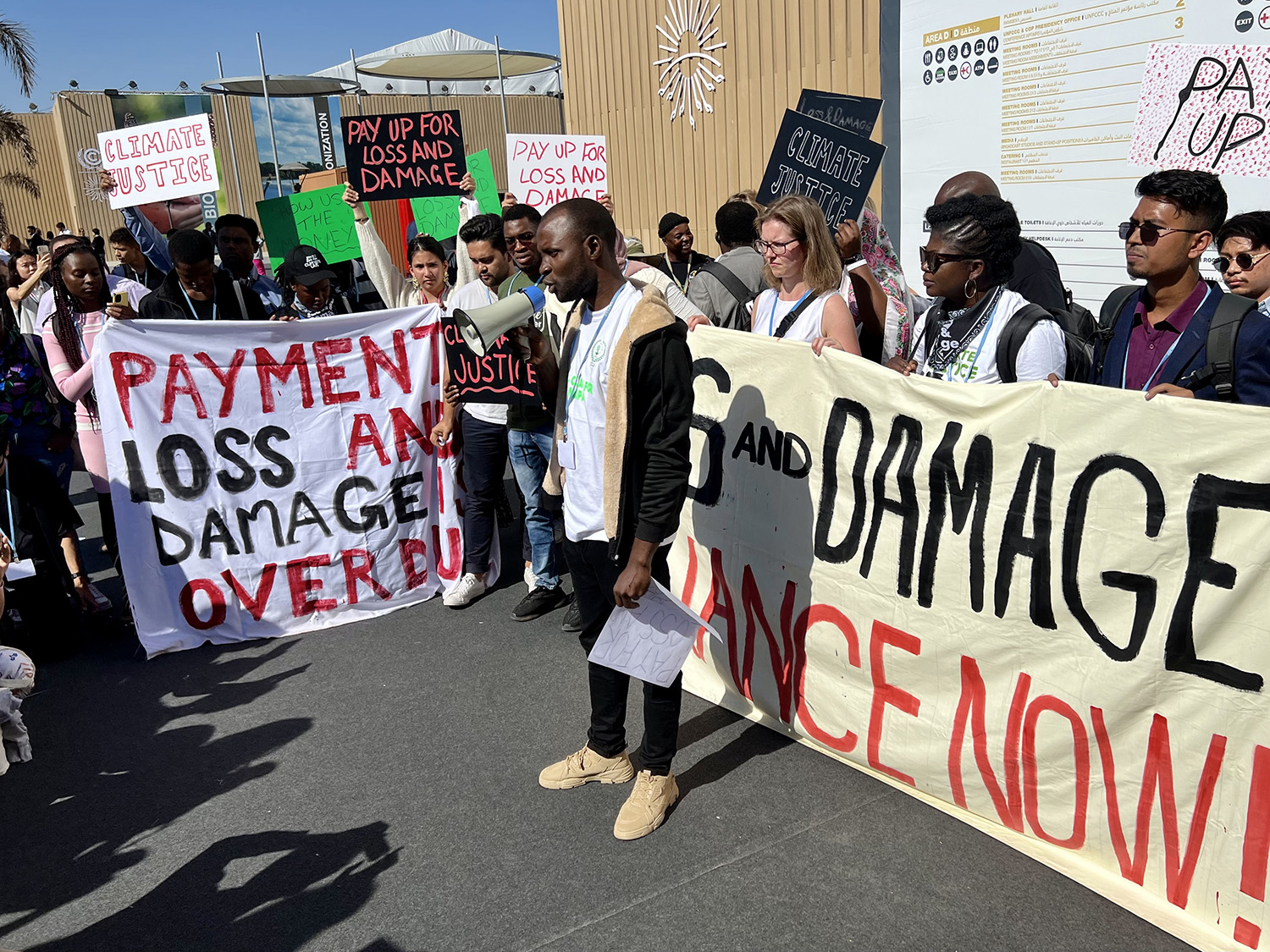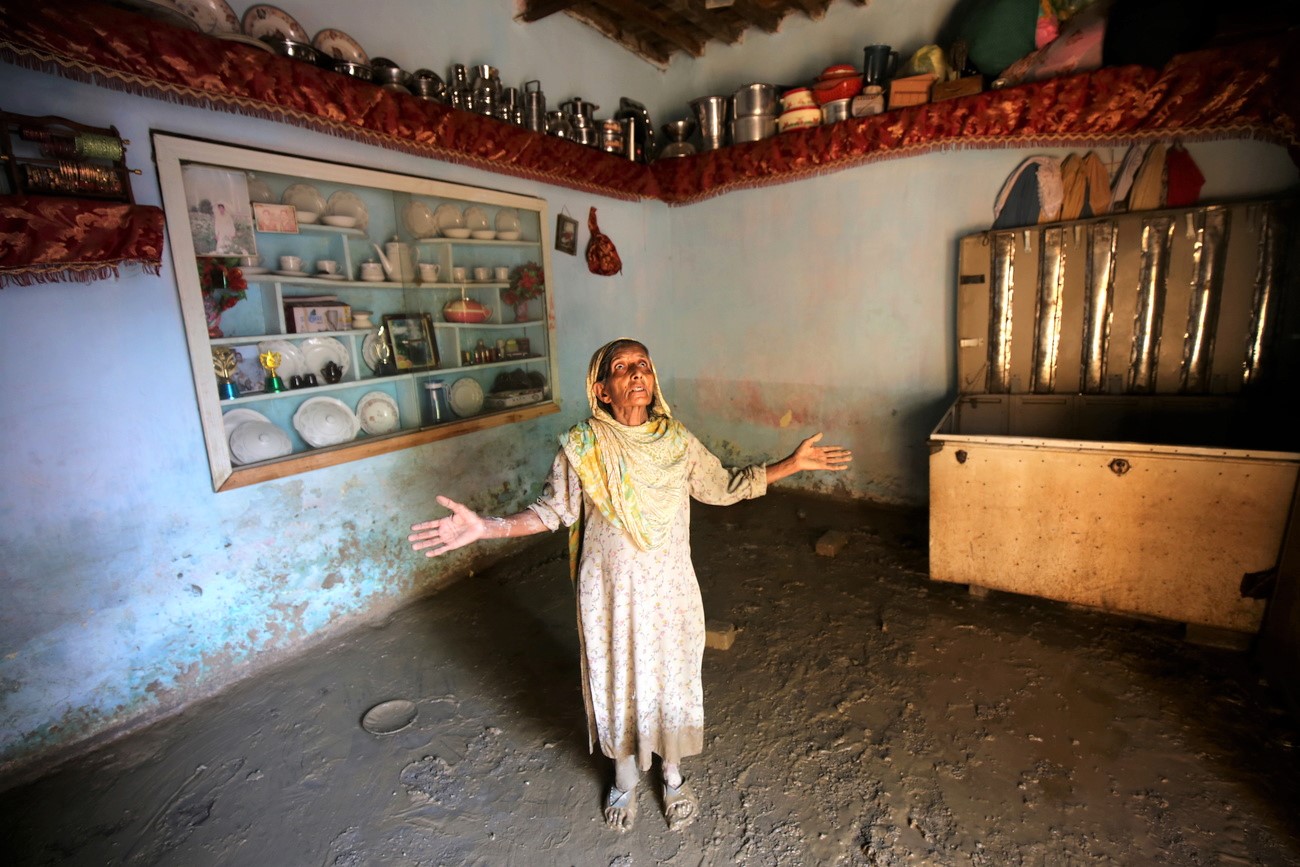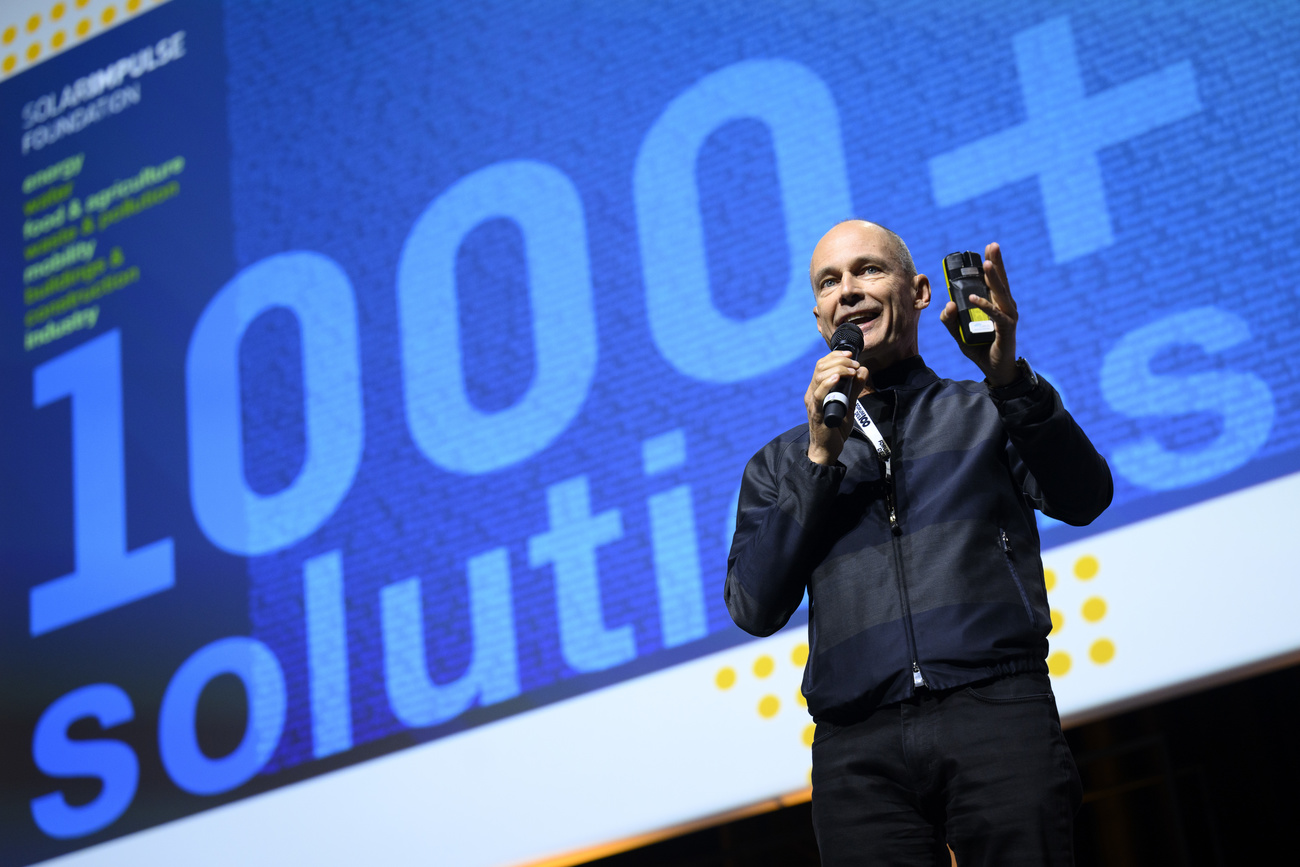
Switzerland denounces COP27 outcome

After going into a second straight night of deliberations, the climate conference ended with an agreement to set up a long sought-after fund to pay developing countries for loss and damage resulting from climate change. Switzerland has yet to confirm if it will contribute and said the overall outcome was “not good”.
As delegates from 197 countries convened a final time early Sunday morning to adopt texts that had been under discussion over the two-week-long United Nations climate conference, the Swiss delegation requested a brief suspension of proceedings to review the final declaration.
Climate negotiators then shuffled around. Switzerland’s negotiator, Franz Perrez, could be seen discussing with Alok Sharma, his United Kingdom counterpart, among others, while the Egyptian presidency watched on from the podium.
COP27 ended Sunday morning after a long night of negotiations with an agreement to create a global fund for “loss and damage” that will provide financial assistance to poor nations struck by climate disaster. While the fund was welcomed by countries of the Global South who suffer most from the effects of climate change, controversial decisions were left until next year, including who should pay into it.
‘Not a good outcome’
Meanwhile, negotiators failed to make any advances to encourage rapid cuts in fossil fuel use, a move that would ensure global warming remains under 1.5°C compared to pre-industrial levels. Saudi Arabia and Russia in particular refused the inclusion of language in the final declaration that would phase out all fossil fuels, and not just coal, as was agreed last year in Glasgow.

More
Switzerland’s measured support for new ‘loss and damage’ fund at COP27
“It was not a good outcome,” Perrez told SWI swissinfo.ch in Sharm El-Sheikh. “But it was clear to us that we were able to prevent something that was really bad, including stepping back in certain areas, including on the ‘loss and damage’ text to make sure that it is focusing on the most vulnerable countries.”
Perrez said that while details about the fund remain to be negotiated, it was not yet clear if it would be effective.
In an official statement published on Sunday, the environment ministry said uncertainties remained “about which countries should contribute to the fund, how the money will be distributed and who will manage the fund.”
“Switzerland will work to ensure that these issues are clarified as soon as possible”, the ministry added.
Perrez said that at this point, it was “too early to say” whether Switzerland would contribute to the fund.
Outstanding questions
In previous comments to SWI, Perrez had argued that Switzerland preferred to “strengthen UN institutions that are already in place to address this issue”, rather than back the launch of a new fund to address loss and damage.
“Before agreeing on a new fund, important questions should be answered,” he said. “Who will be the donor base, who will the recipients be, and who should manage the fund? These questions remain unanswered.”

More
COP27 and the climate crisis: will rich countries pay?
Before returning to Switzerland on Friday, Sommaruga told SWI that the country’s negotiating team led by Perrez would continue to be active in the final stages of the talks in finding a consensus among parties. Switzerland was part of a small yet diverse negotiating group that included Mexico, South Korea, Liechtenstein, Monaco and Georgia.
With strong differences between developing countries, China, the United States and other wealthy oil-producing nations, she said that arriving at an accord was a matter of give-and-take.
“Everyone has to make efforts [in the negotiations],” the minister said. “It’s not only the European countries that should move on [their] positions. Everyone needs to move. We know that well in Switzerland.”
Switzerland has committed to reduce its CO2 emissions by 50% by 2030 compared to 1990 levels. In 2021, however, Swiss voters rejected a referendum on a new climate law that would have allowed more ambitious cuts, leaving the government to extend the current CO2 law until 2024. Discussions recently began in parliament on a revision that would apply in the coming five years.
Lobbyists and polluters in the room
Carbon offsets were also mentioned in the final declaration, with an agreement on the establishment of a registry to track carbon certificates.
Carbon offsetting allows polluting countries or companies to purchase carbon credits to offset their own greenhouse gas emissions. They are regulated by Article 6 of the Paris Agreement.
NGOs, meanwhile, condemned the presence of lobbyists and polluting industries throughout the conference.
“What has not been helpful here is the presence of what I would call the problem,” said Isaiah Kipyegon Toroitich, head of global advocacy at the Geneva-based Lutheran World Federation, a faith-based NGO. “We have had oil businesses here. We have had agri-businesses and multinational corporations whose agenda may not be necessarily about climate change.”
A reportExternal link jointly produced by NGOs Corporate Accountability, Global Witness and Corporate Europe Observatory identified 636 lobbyists from companies doing business in fossil fuels that were present at COP27, including Swiss traders Glencore and Mercuria, and cement manufacturer Holcim.
Perrez said these actors were regular fixtures at the talks.
“We have representatives of special interests of multiple kinds present in Sharm El-Sheikh and at every COP, ranging from oil companies to environmental NGOs,” he said. “These are all representatives of special interests.”
Better climate communication
Bettina Dürr, a youth representative from St. Gallen, said young people had also maintained a strong presence, although she felt negotiators were often “very dismissive” of their demands as they carried out their governments’ mandates.
She said activists in Switzerland need to articulate a clearer message to the public on the impacts of climate change.
“It’s a domestic issue too, and we need to treat it like that in the communication,” said Dürr.
She expressed frustration at the general process and speed of the climate conferences.
“If this process was working, I don’t think we would be in the situation we’re facing right now,” she said. “This is COP27, and the process has been going on for 30 years. There has not been any relevant progress – CO2 emissions are still rising – by this party-driven process.”
Edited by Virginie Mangin/gw

More
‘Even if you don’t care about climate, these solutions make sense’

In compliance with the JTI standards
More: SWI swissinfo.ch certified by the Journalism Trust Initiative































You can find an overview of ongoing debates with our journalists here . Please join us!
If you want to start a conversation about a topic raised in this article or want to report factual errors, email us at english@swissinfo.ch.